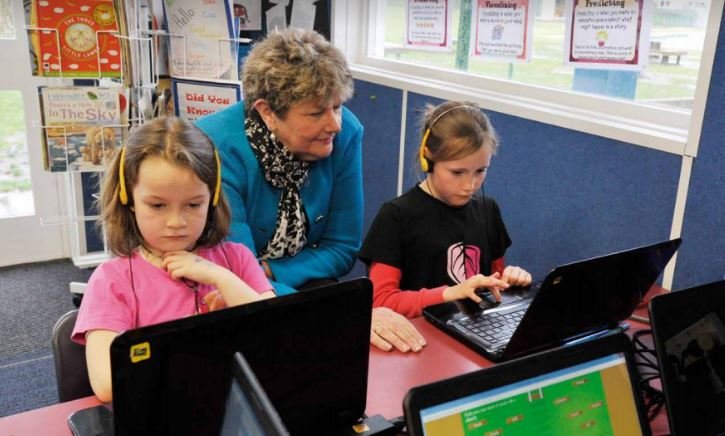Wendy Pye on literacy, philanthropy and the real secret to entrepreneurial success

Every great success story starts with inauspicious beginnings and publisher Wendy Pye’s is no different.
Born in the isolated rural township of Cookernup in Western Australian, Pye briefly attended secretarial school, before chucking it all in and moving to Perth to become a radio copywriter, all at the tender age of 17. Four years later she was flying to New Zealand to accept a position at the New Zealand News group, through which she rapidly progressed, ultimately managing its magazine and trade publication divisions, until unexpectedly being made redundant age 42.
But a seed had already been sown.
“I had been researching a story on dyslexia and research and I was exposed, for the first time, to people who couldn’t read,” says Pye. “Ten and 11-year-olds. I was appalled and I decided to do something about it.”
That she did, establishing Sunshine Books, a company specialising in maths and reading materials. The business was a success, to say the least, and after selling the North American rights in the 1990s, she quickly turned to pioneering the use of digital and CD-Rom tech.
Now 75, she’s considered a pioneer in digital educational resources.
Currently, that takes the form of Super Reader, an Android-based tablet pre-loaded with hundreds of books and thousands of educational activities – no internet required.

“50 percent of the world does not receive the internet,” explains Pye. “There is no internet in the mountains of Bangkok, so a preloaded tablet has enormous potential not only in the countries where it is now selling, but everywhere in the world where literacy is needed. We could change entire nations with exciting material and make a difference. The only way out of poverty is to encourage and deliver education.”
“Young people are high-level users of those sorts of technologies and if you can translate that into a learning environment that makes all the difference,” says Pye. “I’ve devoted my life to the formative years of reading – five to nine – because if kids can read and write by eight years old I think we’ve solved a huge problem.”
They’re currently rolling out the Mark III version of the Super Reader tablet across Thailand, Indonesia, Philippines and Malaysia, with the contract to India still in negotiation.
In its 30 year history the project has achieved some remarkable things: “We worked under Mandela in the black communities who had missed out [on reading education] completely. We saw entire villages change and that’s just what you have to do. Education is the only way out of poverty. The goal is to make someone get up in the morning and can go to work, and feel good about themselves and they can do something with that money. Without reading, they can’t do that. They haven’t got another way out.”
Now with over 300 million books published, Pye says that the group is looking to add to its back catalogue of over 2000 titles and develop new ways to deliver technology.
To that end, the group has just signed a new contract in China to deliver its phonics program on mobile devices on a monthly subscription basis.

Next on the agenda is the development of a solar-powered-tablet reading project to provide digital learning to even those areas with reliable electricity sources, still currently being tested.
Pye says it’s not about the accolades, but she has plenty: Member of the Order of the British Empire, Dame Companion of the New Zealand Order of Merit and the 2014 the title of Business Entrepreneur of the year in the New Zealand Women of Influence Awards, not to mention an estimated personal fortune of $105m (according to the NBR).
Does she ever consider selling up and living the good life? She says she’s had “lots of offers”, but finding the right partner is tricky.
“The right partner would need lots of people on the ground who could sell it, or a charity perhaps. There are offers on the table, but we don’t want to just sign with anyone. For us, it’s about ensuring that they could achieve the results we require. People say that can do things, but it’s often a different case whether or not they can actually do it. This is my life’s work after all.”
That it is, and a very successful one too. So what’s Pye’s advice to those looking to emulate her success? It’s a case of beating the pavement she says.
“It takes time,” she says. “Developing something that you think will work, going out into the market and testing it, modifying it and then refining it again, then developing networks, you can’t do that quickly. It’s a long-term endeavour. It’s tough. The market changes, and you’ve got to constantly work it. You forget about all the things you love. Do you want to go to the beach? Or do you want to make this work?”
“Here in New Zealand we are a great nation of talkers, but you’ve got actually get out there and do it. You need to get on that plane. Go to trade shows, walk around the floor, stay in the cheapest hotels and book the cheapest airfare, and then go and learn the market. Always talk to people and listen to what they have to say. And make hundreds of mistakes.”
She says being successful in New Zealand can be expensive because you have to go and meet people face-to-face.
“There’s no substitute for walking the aisles. And never sign a contract until you’ve consulted a good lawyer. And they are bloody expensive.”




